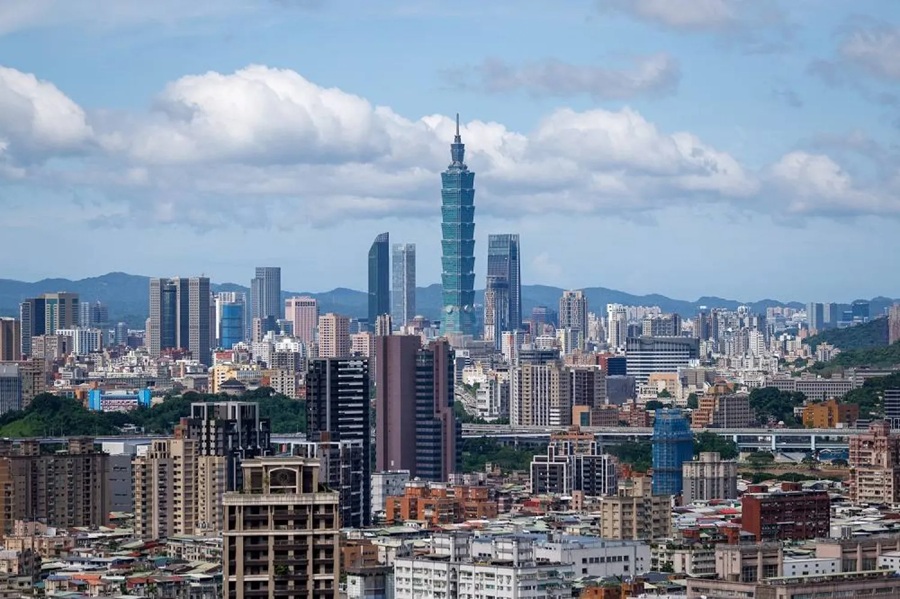China recently marked the 76th anniversary of the People’s Republic of China with a full-page feature in The Fiji Times titled “Explainer: Why Is Taiwan an Inalienable Part of China?”.
Its assertions may sound authoritative, but they collapse under historical evidence and international law.
- Taiwan has not been Chinese “since ancient times”
Long before any Chinese empire claimed control, Taiwan was inhabited by Austronesian peoples with their own societies and languages. The Qing empire annexed Taiwan only in 1683, made it a full province in 1887, and then ceded the island “in perpetuity” to Japan under the 1895 Treaty of Shimonoseki. There is no unbroken Chinese sovereignty.
2. Qing rule does not guarantee permanent ownership
Sovereignty changes through treaties. The 1895 cession was a recognised and final transfer. No modern legal principle allows Beijing to unilaterally undo that history.
3. 1945 brought occupation, not sovereignty transfer
When Japan surrendered, Allied commanders ordered Japanese forces in Taiwan to surrender to Chiang Kai-shek’s troops. That was an Allied military occupation, not a legal handover. Sovereignty must be decided by treaty, not by surrender ceremonies.
4. Postwar treaties left Taiwan’s status unresolved
The San Francisco Peace Treaty (1951) had Japan renounce Taiwan but named no recipient. The Treaty of Taipei (1952) ended the war between Japan and the Republic of China (ROC) but also avoided awarding sovereignty to Beijing. The Allies deliberately kept Taiwan’s legal status open.
5. The PRC has never governed Taiwan
Since 1949, the island has been run by the ROC, with its own constitution, army, and elected leaders. Effective control — not wishful claims — defines real sovereignty.
6. UN Resolution 2758 does not decide Taiwan’s fate
The 1971 resolution gave Beijing China’s UN seat and expelled Chiang Kai-shek’s representatives. It does not mention Taiwan’s sovereignty and does not authorise the PRC to annex the island.
7. Diplomatic recognition does not erase Taiwan’s statehood
Recognition is political, not constitutive. Under the Montevideo Convention, a state exists if it has a population, territory, government, and the capacity to engage with other states — all true of Taiwan. It trades worldwide, belongs to the WTO, and maintains broad international ties.
8. The “one-China principle” is not globally accepted
Many countries, including the United States and the European Union, maintain a one-China policy—acknowledging Beijing’s position but not endorsing PRC sovereignty over Taiwan. Washington explicitly takes no stance on who holds sovereignty and opposes any change by force.
9. Beijing has no legal right to use force
International law bars using or threatening force to seize territory. The PRC’s 2005 Anti-Secession Law contradicts the UN Charter’s core prohibition of aggression. Peaceful settlement and the consent of the governed are the only lawful paths.
10. Taiwan is no longer a civil war leftover
Since 1996, Taiwanese citizens have chosen their presidents by direct vote, changing ruling parties peacefully multiple times. Taiwan today is a stable, full democracy — its legitimacy comes from its people.
11. Taiwan is far from isolated
Taiwan participates in global trade, is a WTO member as “Chinese Taipei,” and maintains robust unofficial partnerships with major economies. It acts as a self-governing, internationally engaged state every day.
The real picture
Beijing’s claims rely on selective history and legal half-truths. No treaty transferred Taiwan to the PRC; UN Resolution 2758 is about representation, not sovereignty; and the island has been self-governing and democratic for decades.
Any resolution of Taiwan’s future must be peaceful and reflect the will of its people not imposed through historical revisionism or the threat of force.
- JOSEPH CHOW is the representative of the Taipei Trade Office in Fiji. The views expressed herein are his alone.



